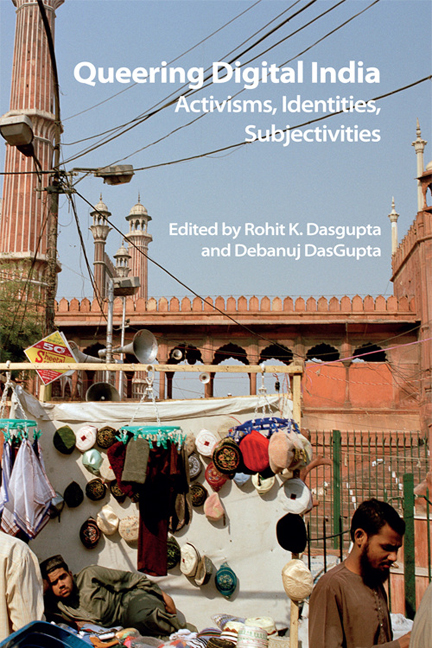7 - The TV9 Sting Operation on PlanetRomeo: Absent Subjects, Digital Privacy and LGBTQ Activism
Published online by Cambridge University Press: 28 April 2021
Summary
In February 2011, TV9, a Hyderabad-based Telugu news channel, aired a sting operation conducted by an undercover journalist on the nationally popular online gay dating service PlanetRomeo. The news anchor's sensationalist overtones of moral panic were accompanied by the breach of the service users’ privacy whose profile content including pictures were exposed in the story. While such an egregious publication of user information in digital spaces marked a continuity with other local news reporting practices on sex scandals, the incident assumed a particular gravity given that privacy related to same-sex conduct among consenting adults was a legally recognised right under the 2009 Delhi High Court Naz ruling that decriminalised homosexuality. The Naz ruling had defined privacy as relating to the personal autonomy of the individual surpassing what Indian LGBTQ activists considered the narrower logic of spatial/zonal privacy. This essay argues, however, that the TV9 sting foregrounds the zonal logic of privacy as more urgent given that the violation occurred in online media spaces that are only ambiguously private. Further, privacy, as it pertains to the Naz judgement, is shaped by a number of critical absences of particular subjects that reconfigure privacy as secrecy, as silence and by implication as a form of safety. The paper draws upon media studies, critical studies of law, new media studies and the scholarship on the globalisation of sexuality to highlight the stakes in public identification as gay or lesbian in the Indian context within the Naz framework of rights and visibility. The essay also critiques the implicit relationship between homosexuality and privacy as having a pre-eminent status globally towards the recognition of homosexuality in the law.
Context
The widely celebrated Delhi High Court judgement of 2009 in Naz Foundation v. Union of NCT of Delhi represents an apotheosis of the struggle for LGBT rights in India. For one, the judgement expressly dealt with the colonial legacy of Section 377 of the Indian Penal Code, codified in British India in 1861, with a view to punish what at the time was deemed as innate native perversity of sexual conduct (Bhaskaran 2002). In the colonial period, the law was employed as a legal instrument for the control of certain itinerant populations like hijras and certain tribes who were seen as ontologically criminal (Arondekar 2009).
- Type
- Chapter
- Information
- Queering Digital IndiaActivisms, Identities, Subjectivities, pp. 132 - 148Publisher: Edinburgh University PressPrint publication year: 2018



